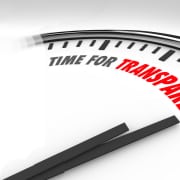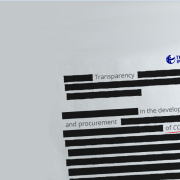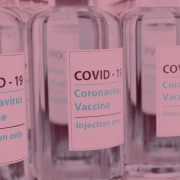|
Getting your Trinity Audio player ready...
|
The hot topic of conversation in media, in homes around the country, and on millions of lips is the rollout of South Africa’s Covid-19 vaccination programme. Corruption Watch has been following the developments with interest and concern, and indeed has warned about a repeat of the widespread greed and corruption that emerged during the first round of Covid-19 procurement, that of personal protective equipment (PPE) and associated goods and services. The organisation, with numerous others, has spoken out strongly against these unsavoury actions.
As far back as April 2020, Corruption Watch warned Treasury that the lack of transparency or provision for monitoring emergency procurement posed a significant risk of corruption. By then, corrupt activities were in full swing and would only get worse.
In this latest large-scale procurement initiative the organisation has engaged with National Treasury on two fronts – to seek clarity on the processes that will be used for procurement as well as any deviations from those processes, and to express its concerns that we will see more of the looting that happened last year if oversight is not tightened and compliance insisted upon.
Recently Stellenbosch University law professor and public procurement specialist Prof Geo Quinot assessed the situation from an academic point of view, and explains in a comprehensive paper “what we know about the procurement behind government’s Covid-19 vaccine programme, what we do not know and what we should know”.
Corruption Watch hosted a webinar on 3 March 2021 to discuss the gaps in information shared by the government around the procurement of Covid-19 vaccines. Quinot was the presenter, with Unisa law lecturer Dr Allison Anthony as respondent, and freelance journalist Rebecca Weber as moderator.
Watch the webinar:
More questions than answers
One of Quinot’s big questions relates to whether or not the agreements reached with vaccine suppliers and service providers will comply with the constitutional provisions of fairness, equitability, transparency, competitiveness and cost-effectiveness – precisely because there is still much secrecy around the details of such agreements and the costs involved.
If, for example, these vaccine supply contracts contain non-disclosure terms, he says, “transparency will be seriously reduced and with it any attempt at establishing whether the contracts were, for example, competitive and fair.”
He cites medical academics Keymanthri Moodley and Theresa Rossouw who, writing for The Conversation, ask why South Africa paid more than twice the amount per dose for the AstraZeneca vaccine than did European Union countries, given that we hosted a clinical trial for the manufacturer, and “post-trial access and benefit sharing are firmly entrenched research ethics principles”.
Quinot also points out discrepancies relating to government’s procurement of rollout services. The deviation to obtain the initial logistics services seems unnecessary, he says, because the services would have been planned for since at least September 2020 and therefore could hardly be described as urgent. The reasons for selection of the four particular suppliers of distribution services is also unclear.
He concludes by saying that if South Africa’s vaccine rollout programme is to succeed, people must be confident enough to participate – but that calls for high levels of public trust. Opacity, secretiveness and uncertainty will, however, damage the public’s trust even more than it already has been, which in turn will jeopardise the success of the vaccine programme and the millions of public money spent on it. “One hopes that the relevant information will be made public as soon as possible as an important step to ensure public trust in this essential programme.”








